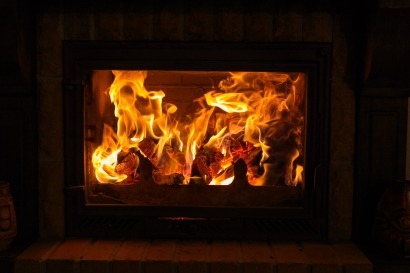
Thirty percent said they put their heat on for an extra five hours a day at this time of year with 24% putting the heat on for an extra three hours and 22% for four hours more.
In November, Northern Ireland's largest electricity supplier announced its first price increase in more than a year. Household electricity will rise by 4% from December 2024 adding about £38, (or $48) onto the typical household annual bill which will rise from £951 (around $1200) to £989 (around $1260).
The emerging cost of living has been tough on households throughout Northern Ireland, with the Utility Regulator's Energy Hardship report showing many participants were skipping meals or drastically reducing their energy use to levels below their daily living needs in a bid to try and keep costs down.
There looks to be further increases on the horizon across Great Britain as energy regulator Ofgem announced its price cap will go up in January affecting 26 million households across England, Wales and Scotland.
Ian Wilson, Managing Director and savings expert at CompareNI said, “It's a worrying time of year for households across Northern Ireland as temperatures start to drop and they reach for the heating switch.
“Households have had to battle surging cost of living expenses throughout 2024 and these additional winter heating costs are a step too far for many. Anyone struggling to pay their bills can speak to their energy supplier for help and advice.
"Over half of those surveyed, 53%, said they would like to change their type of heating but say it's too expensive to do so.
“However, there are steps people can take to help reduce their current energy costs, such as regularly servicing their boiler – they may find they can turn the thermostat down, given the boiler is now working more efficiently and save on energy.
“It's also a requirement to keep your home insurance valid that the boiler is serviced regularly by a professional and well maintained – worrying 32% of those surveyed didn't realize that.”
The survey also showed people in Northern Ireland are keen to find cheaper and greener solutions to their energy needs, with 50% saying they would change to renewable heating.
Interestingly they are not so keen to try a hydrogen boiler, only 12% said yes to giving it a try – with 63% citing they didn't know enough about this new energy source.
Hydrogen is said to be more efficient than natural gas as a fuel source but due to the cost of production it would likely cost more for households to run their boilers entirely on hydrogen than natural gas, at least initially.
Consumers can buy 'hydrogen blend ready' boilers which are able to run with a mixture of 20% hydrogen fuel and 80% natural gas. Consumers are yet to find out what hydrogen fuel would cost and what sort of infrastructural changes would be needed to pipe it into people's homes.

